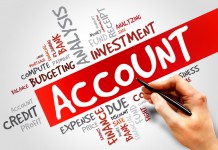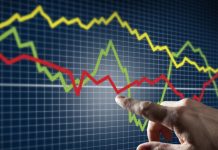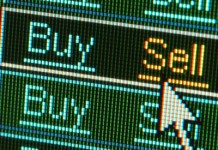How you start that journey is vital
 The trading world is littered with truisms, sayings and, frankly, plenty of b*ll***t. “The trend is your friend”, take your losses and run your profits, 85% of traders lose their initial deposit within three months, only eat shellfish when there is an “r” in the month. Ok so the last one doesn’t apply but it serves to get your attention.
The trading world is littered with truisms, sayings and, frankly, plenty of b*ll***t. “The trend is your friend”, take your losses and run your profits, 85% of traders lose their initial deposit within three months, only eat shellfish when there is an “r” in the month. Ok so the last one doesn’t apply but it serves to get your attention.
Everyone rails against regulation at some point. Brokers do, as they feel that they are being watched or spied on, generally feeling that self regulation is best. But, and it’s a big BUT, this business brings in its fair share of rogues, scammers and plain and simple thieves. Watch the movie “The Sting”. The most successful confidence tricks are never discovered, so self-regulation is never going to happen. Even Alan Greenspan admits he was wrong about self-regulation!
There is plenty of advice out there for traders of all levels of experience. For the novice they are often simply ways to get them to part with their cash before they even do their first trade. The way the internet is set up means that if you Google FX trading you get inundated with offers advice and promises of the holy grail.
Personally I work with several brokers across the whole foreign exchange space. Payments firms, retail trading platforms and “infomercial” sites. They get their share of criticism as every business does. This is an area where strong opinions matter and are encouraged so you wouldn’t expect anything different. However, any criticism is dealt with professionally and with complete transparency. There is a genuineness about them that I trust.
 Let’s concentrate for a minute on the 85% legend. Why does that happen? Do banks and brokers tilt the playing field against the trader? Is that something that an experienced trader should see but you wouldn’t expect a novice to?
Let’s concentrate for a minute on the 85% legend. Why does that happen? Do banks and brokers tilt the playing field against the trader? Is that something that an experienced trader should see but you wouldn’t expect a novice to?
In my opinion it is because novice traders treat their experience as a science, personally, I see it as an art! What does that mean? Well anyone can sit in their basement with “trading for dummies” and understand technical analysis from cover to cover, spotting patterns as they form and trusting completely the formulae that bring analysis to life.
But does Technical Analysis help you understand Brexit or 911, or the Japanese Tsunami? Can it help decipher the nuances FOMC meeting or the suchlike?
On the whole, training revolves around technical analysis. Why is that? The answer is twofold. First; it is easiest to teach. Working examples and appealing to a knowledge that participants already possess, teaching an application rather than a new skill. Second; the hardest part and the major differentiator of trading, cannot be taught, but no one taking your money is going to tell you that; Knowledge and experience.
No matter which way anyone looks at it, the market isn’t solely driven by technical factors anymore than it is by fundamental or economic factors.
I had an interesting conversation the other day with an online contact who maintained that EUR/GBP was going to top out and fall from the level it was trading at at that point.
I asked him how he could be so certain and he told me that “the elasticity had disappeared from his chart. Now, I do not profess to be an expert in technical analysis but I have a decent working knowledge, so I asked him what he meant.
 He told me that put simply, there were no more buyers for the pair. I asked his view on the comparative strength of the two economies, the effect of Brexit and the day to day macroeconomic economic data being released. He told me that, as far as he was concerned, all that stuff was simply background noise and didn’t concern him.
He told me that put simply, there were no more buyers for the pair. I asked his view on the comparative strength of the two economies, the effect of Brexit and the day to day macroeconomic economic data being released. He told me that, as far as he was concerned, all that stuff was simply background noise and didn’t concern him.
Needless to say, or I wouldn’t have highlighted the conversation, the pair traded about another 150 pips higher as Brexit concerns drove the pound lower.
Don’t worry, I have seen a number of examples that work the other way. The moral of the story is that you will only be a successful trader if you treat every piece of data, every chart point and every trading methodology with the same respect and importance.
Training courses. Are they beneficial? How do you judge whether they will provide you with what you are looking for rather than what they want you to know.
The first pitfall of trading courses is value driven. Is it free? If not no matter how much valuable advice you receive, there is no question that; a) there is something you haven’t been told and b) you will get a very narrow view of the type of broker that is available since the event will no doubt have been sponsored. If it isn’t free there are even more questions; a) how do you decide value for money, b) is it a total ripoff, c) do statements a) and b) from the free seminar apply?
Unfortunately, it is extremely difficult to answer these questions. Testimonials hardly apply since they are open to interpretation and “massaging”. The pedigree of the speakers is of no help. Basically there is no sure way to understand the value of courses and or seminars without independent verification and that is virtually impossible to obtain. The only sensible advice is to get some basic knowledge by reading as much as possible about trading from as many sources as possible.
 What should be expected from a broker? At least now we are entering into a regulated area so there is a minimum standard that can be expected. Therefore the first thing to do is make a list of every jurisdiction that regulates FX brokers. Trust me there are some far flung places where regulation is possible. That isn’t to cast aspersions of their market knowledge, experience, rules or oversight. They are as well regarded as the more conventional places.
What should be expected from a broker? At least now we are entering into a regulated area so there is a minimum standard that can be expected. Therefore the first thing to do is make a list of every jurisdiction that regulates FX brokers. Trust me there are some far flung places where regulation is possible. That isn’t to cast aspersions of their market knowledge, experience, rules or oversight. They are as well regarded as the more conventional places.
Regulation is a far more complicated business than it used to be as the regulator is the one who “carries the can” for every scandal. What can and can’t be said what kind of bonuses are allowed and how pricing and orders are handled are just a few of the thorny issues.
I wouldn’t want to recommend a specific or even a particular type of broker since that is very much down to personal preference. I would say however always look at a decision calmly, try to understand why a broker did what he did in any dispute then make a decision. Although it may seem that the broker needs the trader more than the other way round, it is a very mutual relationship that can work well with respect on both sides.





![How to install MetaTrader 4 / 5 on MacOS Catalina? Simple way. [VIDEO]](https://comparic.com/wp-content/uploads/2020/07/mt4-os-218x150.jpg)











